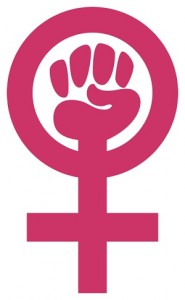When I was young—very young, like three or four years old—I wondered why men could remove their shirts in public, but women could not. In my youthful logic, I saw the seeming inequity as unfair to women, who might get hot and sweaty on a summer day.
But as I grew toward adulthood, it became clear that there was a difference: That women’s breasts are inherently sexual—linked, as they are, to physical arousal and, coincidentally, to sustaining new life. For the woman, breasts are an erogenous zone; for the man, a source of excitement and promise. This is not bad; this is how God created the human body, and it is good.
It also means that a woman’s breasts are, in most societies, kept covered. It’s respect, not shame, that mandates that women cover themselves. That’s why women hit the beach wearing swimsuits that cover both top and bottom.
Until now. Now, in the interest of gender equality, it seems that different dress codes for men and women are deemed inappropriate and discriminatory—at least in New York City.
Police officers in Gotham have been instructed that, should they encounter a shirtless woman who is not breaking the law, they should not arrest her. The policy shift means that in New York, exposing one’s breasts is not considered indecent exposure, disorderly conduct, or lewdness.
The liberal political website policymic explains the reason for the NYPD’s expansion of women’s nudity rights:
This policy shift comes after several years of litigation and protest. In the 1992 case People v. Ramona Santorelli and Mary Lou Schloss, the New York Court of Appeals ruled in favor of two women who were arrested with five others for exposing their breasts in a Rochester park, holding the law void as discriminatory. The ruling was put to the test in 2005, when Jill Coccaro bared her breasts on Delancey Street in New York, citing the 1992 decision, and was detained for twelve hours. She subsequently successfully sued the city for $29,000.
In 2007, Go Topless, a national organization supporting gender equality in shirtlessness laws, established Go Topless Day. Dozens of women protest – often topless – in thirty cities around the United States, promoting equal rights to be shirtless. Protests usually include chants of “Free your breasts. Free your minds” and a song “Let ‘em Breath” to the tune of the Beatles’ “Let it Be.”
Some feminists have applauded the NYPD’s new, relaxed policy regarding public exposure of women’s nipples. Other Americans of both genders—myself among them—see this as one more way that the women’s movement has self-immolated on an altar of decline and degradation.
NOTE: No photographs have been included with this post.












